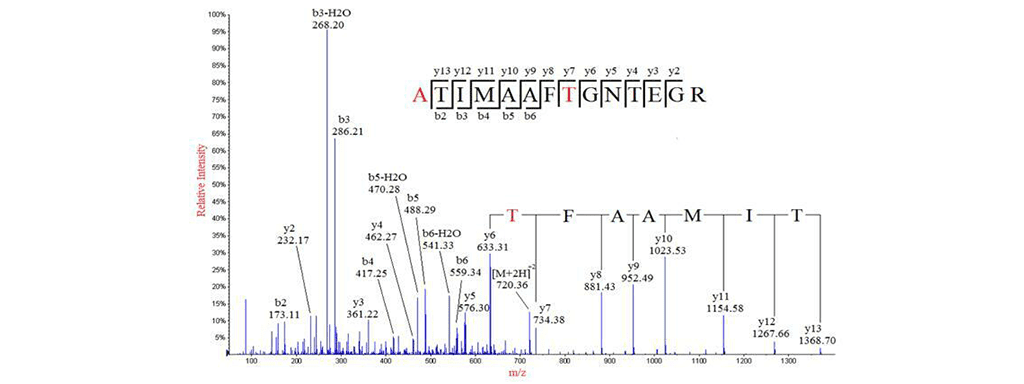
The De Novo Peptides/Proteins Sequencing service by Creative Proteomics has recently been upgraded. It studies the biological function of the peptide/protein.
The sequence of a peptide/protein is critical for understanding its biological function. However, complete peptide/protein characterization, including post-translational modifications (PTMs), sequence mutations, and variants, is extremely difficult. By mass spectrometry, the sequence of a peptide/protein can be determined in two ways: database search and de novo sequencing. To identify protein sequences, the database search approach compares acquired mass spectra to a database of known protein sequences. De novo sequencing is the process of directly interpreting amino acid sequences from tandem mass spectra without the use of a database.
De novo sequencing is the only way to identify new peptides, unsequenced organisms, and antibody drugs that cannot be detected by database search methods. However, de novo sequencing is more challenging than traditional database search methods. For example, ambiguous assignments of fragment ions, insufficient product ions generated in incomplete fragmentation lead to low sequence coverage and difficulty in distinguishing ion series, notably N-terminal from C-terminal MS/MS product ions (b ions from y ions).
Creative Proteomics addresses these challenges through the following four strategies:
1)Fourier Transform Ion Cyclotron Resonance Mass Spectrometry (FTICR-MS) has the highest mass resolution and accuracy, avoiding false positives caused by low mass resolution and accuracy. Using 7T solariX XR FTICR-MS, the mass resolution capability can reach 10,000,000. As the quality of the assignments increases, the resulting assignments become increasingly confident.
2)Both bottom-up and top-down mass spectrometry is used to analyze the same sample. Bottom-up allows us to use different enzyme digests to generate overlapping peptides, while top-down mass spectrometry provides complete mass data and provides detailed information about protein fragmentation. The peptide/protein sequence can be better confirmed by combining these data.
3)The four fragmentation techniques can provide more fragment ions of the same peptide/protein and these complementary data will definitely improve ion distribution. They are collision-induced dissociation (CID), electron transfer dissociation (ETD), electron capture dissociation (ECD) and high energy collision dissociation (HCD).
4)Creative Proteomics provides chemical derivation to identify ion series.
“Creative Proteomics is a professional biotech company specializing in providing proteomics services. Based on the highly experienced and knowledgeable staff, Creative Proteomics can provide a fast turnaround, clear and concise written reports, and customized services to help customers resolve analytical and technical challenges,” said Creative Proteomics’s Senior Scientist.
If you feel interested and want to learn more, please visit https://www.creative-proteomics.com/services/de-novo-peptides-proteins-sequencing-service.htm
About Creative Proteomics
Creative Proteomics, as an experienced proteomics, metabolomics, and bioinformatics services supplier, has been well equipped with advanced technologies in order to meet the increasing needs of scientists in their proteomics and metabolomics-related research.
Contact:
Address: Shirley, NY 11967, USA
Email: [email protected]